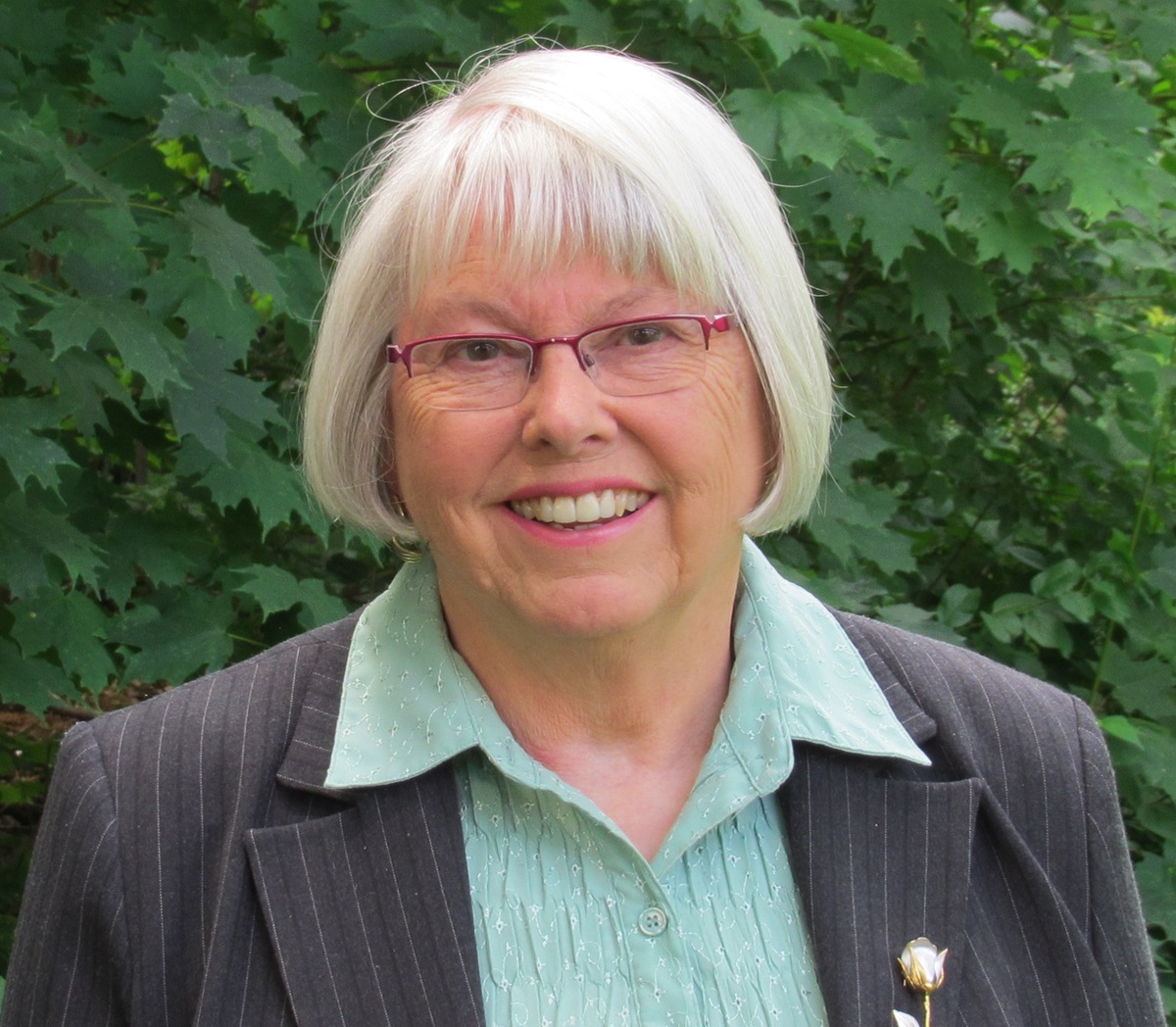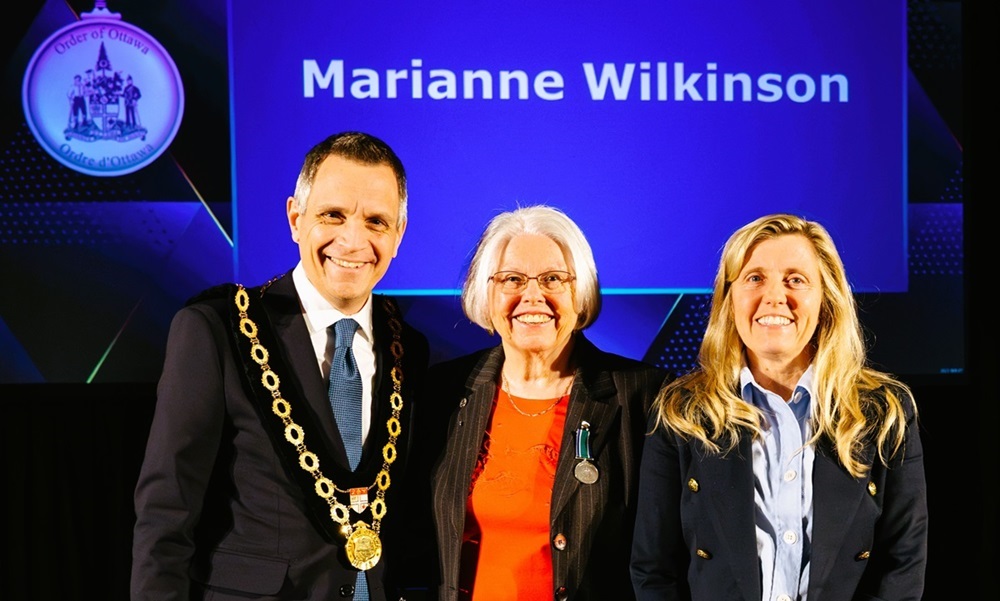by Iris Winston
Very few people begin a political career when their youngest child is just a few months old. Even fewer take on a two-year term as president of a national organization when they are 85.
Marianne Wilkinson did both of these things, book-ending a long career of service to her community through volunteerism and political involvement from the time she and her family moved to Kanata in 1968 to the present. In 1969, she headed into the political arena when her three young children were just five, two and four months old, as an elected representative of March Township. Some 54 years later, she became president of the National Council of Women of Canada for a term of office that will be completed in 2025.

“I’ve had a busy life,” says the former high school teacher, who also worked as a realtor for over a decade. “I’ve done a lot of different things over the years. I like variety.”
Most of all, she has been involved with her community in assorted capacities, beginning by joining the Beaverbrook community association shortly after settling in Kanata.
“I just fell in love with Kanata and the idea of a whole town being created from scratch, as soon as we saw it,” she says. “In teaching geography, I also taught urban studies, so I asked a lot of questions about the concept.”
Kanata, conceived and developed by urban planner Bill Teron as a model community, was built on 1,200 hectares of rural land. His design included a mix of commercial and residential densities and large amounts of green space surrounded by a greenbelt.
A casual conversation with the head of the community association became the starting point for Marianne’s foray into local politics. She recalls that when she asked whether he planned on running for council, he suggested that she should stand for election instead.
“So I ran and got in and that changed the way I did things in my life,” says Marianne. “It was almost like staying on as a volunteer because the municipality was quite small. Then, when Bill Teron left the community, we all worked together to maintain his concept. The huge community involvement made all the difference. I think we did a really good job together, not perfect but pretty good.”

From being elected to March Township Council (1970 to 1975) — the first woman to run for office there — she went on to serve as the first female reeve of March Township and, after working towards the amalgamation of the township with parts of Goulbourn and rural Nepean, she served for seven years (1978 to 1975) as the first mayor of Kanata (1976 to 1985) following the community’s incorporation. She served another term as a Kanata councillor (1991 to 1994) and, after Kanata was amalgamated into the city of Ottawa in 2001, she represented Kanata North on Ottawa city council in 2006 and was re-elected for two further terms until she retired from council in 2018.
“When I decided not to run again in 2018, I retired from city council to go back to doing work in the community,” says Marianne, who was recently inducted into the Order of Ottawa for her services to the city and the community.
Before and since her retirement from council, she has been a member of the board of the Western Ottawa Community Resource Centre and has worked with such organizations as the Kanata Food Cupboard, the Kanata Choral Society and Kanata Theatre. She has also served as warden of St. John’s Anglican Church and has been a long-time member of the Canadian Federation of University Women and other women’s groups. Most notable among these is the National Council of Women of Canada, for which she is now serving as president.
“This is an organization that puts together resolutions to create policy of interest and take them to the government of Canada,” she explains. “In 1899, equal pay for equal work was a major focus. Today, we are particularly concerned about issues surrounding health, housing and climate change.”
Among her immediate concerns as president of the Council of Women is rebuilding, she says. “Like many other associations, the council is struggling to re-establish itself after COVID. Numbers have gone down but we still have a history of working on major issues for 130 years and that will continue.”
So will her involvement in community issues, she says, since her life’s work has been focused on “making our communities great for the people who live in them, not just here in Kanata but everywhere.”






